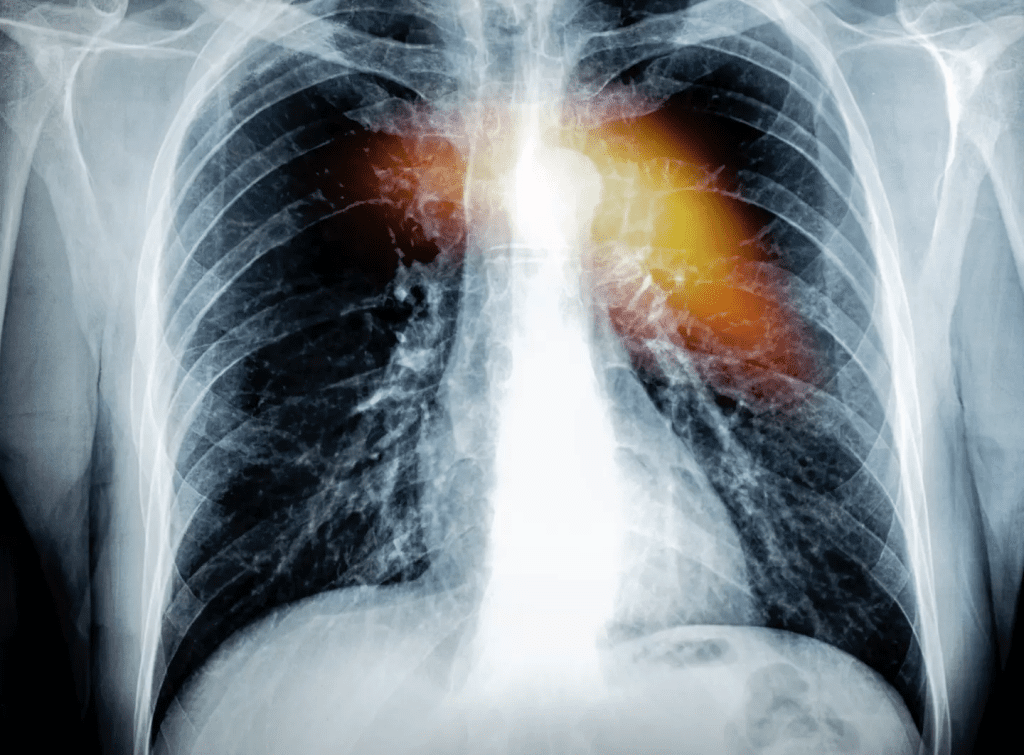Do you prefer sleeping upright or propped up with multiple pillows? You might think it’s just a preference, but doctors are now warning that this specific sleeping position could be a sign of a serious, hidden health condition. Recent insights from Dr. Rosie Godeseth, a cardiologist and Associate Medical Director at Vitality Health, suggest that the discomfort you feel when lying flat could be linked to a severe underlying issue: heart failure. Let’s dive into how your sleeping position might be more than just a quirk and why paying attention could save your life.

Having difficulty sleeping unless you’re propped up could be a dangerous sign. (Getty stock images)
Why Sleeping Upright Could Signal Health Issues
If lying flat in bed makes you reach for an extra pillow or two to prop yourself up, you might be experiencing an early warning sign of heart failure. Heart failure occurs when the heart’s muscles weaken and can no longer pump blood effectively, leading to fluid buildup in the lungs. This buildup can make lying down difficult, causing breathlessness and a preference for sleeping in a more upright position.
This isn’t just about being more comfortable. If your body requires you to sleep upright, it may be telling you that your heart is struggling. The signs are subtle but significant, and experts urge anyone with this discomfort to get checked out.
The Science Behind Heart Failure Symptoms
So, why does heart failure cause these symptoms? Here’s a quick breakdown of what happens in the body:
- Fluid Buildup: Heart failure often results in the accumulation of fluid in the lungs, making it challenging to breathe when lying down.
- Increased Breathlessness: When you lie flat, gravity no longer helps keep fluid out of the lungs, intensifying breathlessness.
- Decreased Oxygen Levels: With the lungs unable to function optimally, oxygen levels can drop, leaving you feeling fatigued, breathless, or in need of a more upright sleeping position.
As Dr. Godeseth explains, the body often compensates by seeking positions that reduce pressure on the lungs, such as propping up with pillows. This adjustment can feel minor, but the implications could be severe.
Signs and Symptoms of Heart Failure to Watch For
While needing to sleep upright is one clue, it’s essential to understand other warning signs of heart failure. If you experience several of these symptoms, consider scheduling a check-up:
- Persistent Fatigue: The weakened heart cannot pump enough oxygen-rich blood, leaving you exhausted.
- Swelling in the Legs and Ankles: Reduced blood flow can lead to fluid retention, causing swelling, especially in the lower extremities.
- Shortness of Breath During Activity: If everyday tasks leave you winded, it could be due to inadequate blood flow from a weakened heart.
- Waking Up Breathless: Regularly waking up gasping for air is a telltale sign of heart trouble.
- Rapid or Irregular Heartbeat: Heart failure can cause arrhythmias, leaving you feeling like your heart is racing or skipping beats.
These symptoms may appear mild or be mistaken for other health issues, but they can escalate rapidly. Heart failure isn’t just an “old age” condition; it can strike younger individuals, especially if there are lifestyle factors involved.
How Sleeping Position Connects to Heart Health
Many of us have specific ways we like to sleep, but the need to prop yourself up could be more than a habit. Dr. Godeseth explains that heart failure disrupts the body’s natural balance, often leading to what’s known as orthopnea, or shortness of breath while lying down. When this happens, many individuals instinctively reach for extra pillows or choose a reclined position to relieve discomfort and improve airflow.
This act of sleeping in an upright position serves as the body’s attempt to mitigate pressure on the lungs, reducing symptoms. However, if left unchecked, these adjustments won’t address the root problem—only a healthcare professional can help determine if the discomfort is due to heart issues or another cause.

It can be sign of heart disease (Getty stock images)
What to Do if You Experience These Symptoms
If you find yourself regularly propped up with pillows or experiencing discomfort while lying flat, it’s time to seek medical advice. Here’s what doctors recommend:
- Consult a Doctor Immediately: Don’t wait for symptoms to worsen. Share your symptoms, particularly if you notice any shortness of breath while lying down.
- Undergo a Sleep Study: A sleep study, where health monitors record your breathing and heart activity overnight, can reveal if your sleep patterns are tied to heart issues.
- Get a Heart Function Test: Your doctor might recommend an echocardiogram or stress test to evaluate your heart’s pumping efficiency.
An early diagnosis can make all the difference. While heart failure is serious, timely intervention can prevent it from worsening. The British Society for Heart Failure warns that nearly 400,000 individuals in the UK may be living with undiagnosed heart failure—a statistic that calls for increased awareness and proactive health checks.
Prevention: Steps to Support Heart Health
While some factors of heart failure, like genetics, can’t be changed, there are lifestyle habits that greatly reduce the risk. Dr. Godeseth emphasizes two critical areas: exercise and diet.
- Exercise Regularly: Physical activity keeps the heart muscle strong and improves blood circulation. Aim for at least 150 minutes of moderate activity each week, like brisk walking, cycling, or swimming.
- Adopt a Heart-Healthy Diet: Diets low in sodium and saturated fats can protect heart health. Try incorporating more fruits, vegetables, lean proteins, and whole grains while avoiding heavily processed foods.
Even small adjustments can make a significant impact over time. Beyond physical health, these changes also promote mental well-being, creating a positive cycle for overall heart health.

Sleeping propped up on pillows can be a sign of bad health (Getty stock images)
A Silent Epidemic: The Need for Awareness
Heart failure is often called a “silent epidemic” because of its gradual onset and subtle symptoms. The British Society for Heart Failure’s chief executive, Lynn Mackay-Thomas, describes it as a “ticking time bomb,” emphasizing the need for a national program to identify high-risk individuals before they become severely ill. Awareness campaigns and early detection could reduce the number of hospital admissions, changing the course for thousands of people.
By paying attention to the signals your body sends—like an unusual sleeping position or persistent fatigue—you can potentially catch issues early and take action to safeguard your health.
Conclusion
Our sleeping position might seem trivial, but it can reveal important clues about our health. If you find yourself reaching for pillows to stay propped up or struggling to breathe when lying flat, consider it a red flag worth investigating. Heart failure is a severe but manageable condition with early detection and lifestyle adjustments. Don’t ignore the signs your body is sending. Listen to your instincts, take proactive steps, and protect your heart health—one night’s sleep at a time.


